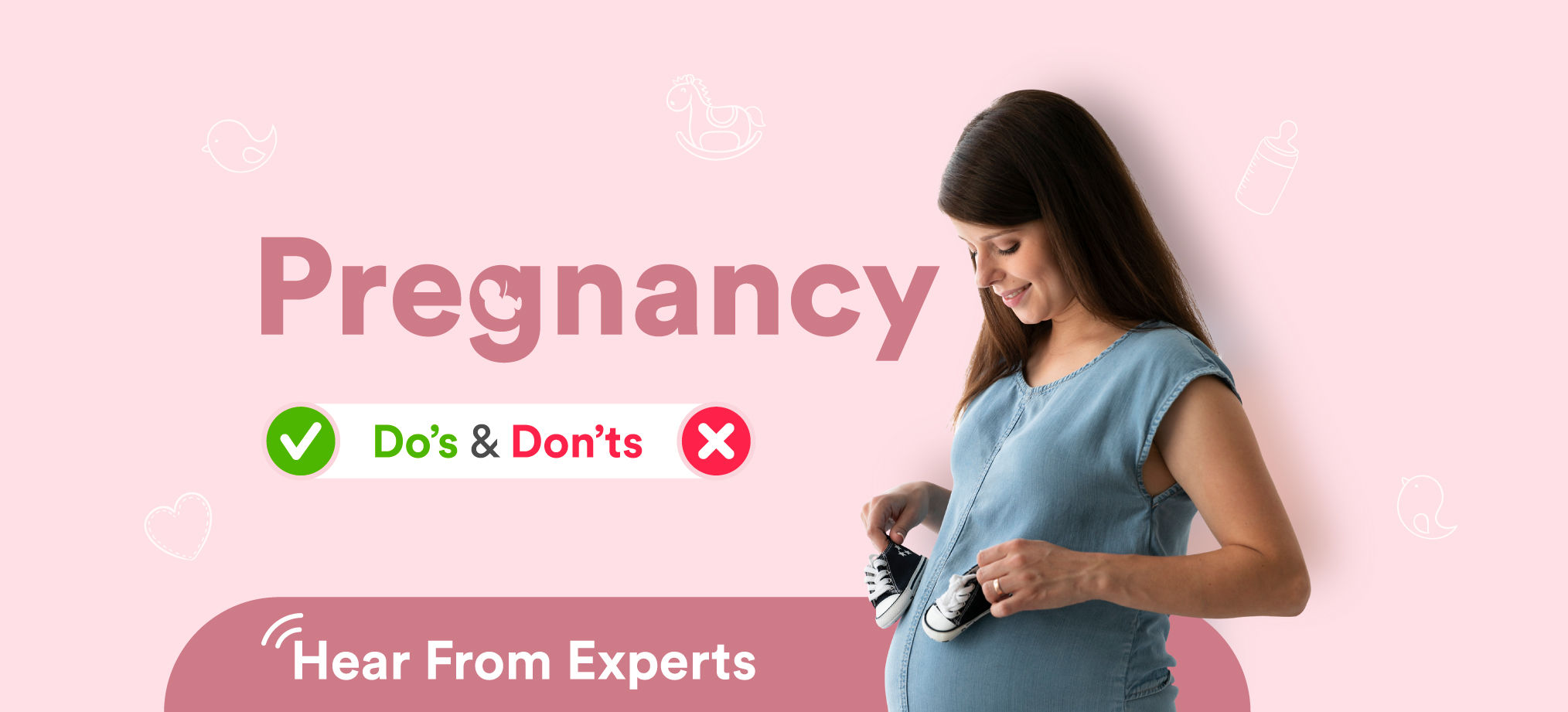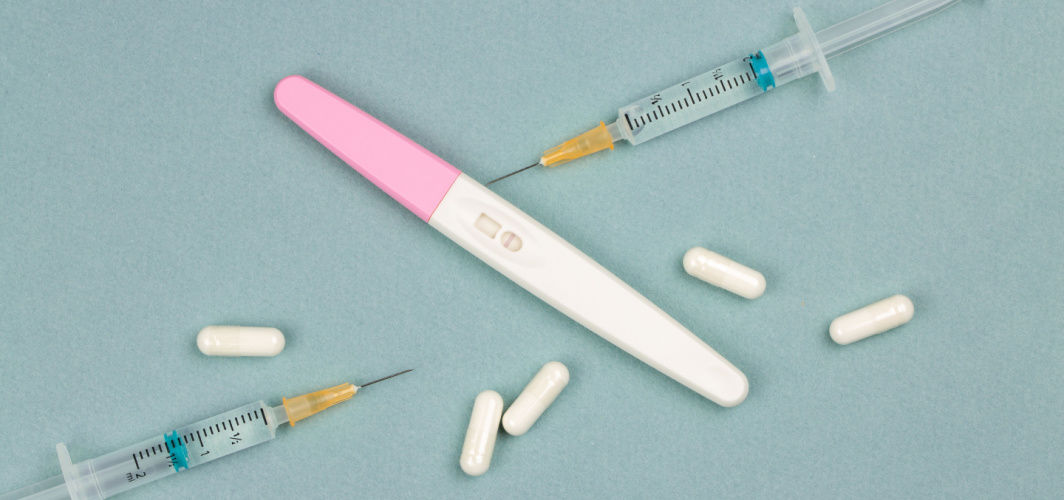Women's Wellness
What To Do And What To Avoid During Pregnancy?
4 min read
By Apollo 24|7, Published on - 20 March 2023, Updated on - 11 February 2025
Share this article
0
0 like

If you are pregnant or planning to start a family, it's essential to understand the importance of adopting healthy lifestyle habits. Taking care of your health throughout your pregnancy is vital for your well-being and that of your unborn baby. Here are some of the best practices for pregnant women to follow.
Things To Do During Pregnancy
1. Take a Healthy Diet
Eating healthy is very important during pregnancy to ensure optimal baby growth in the womb. Pregnant women should try to include lots of vegetables, fruits, calcium-rich foods, whole grains, and food items low in saturated fat in their daily diet. They should eat around five to six, well-balanced, small meals every day including foods loaded with folate, such as asparagus, fortified cereals, wheat germ, and oranges. Folate or folic acid is vital to prevent neural tube and spinal defects in the baby.
2. Take Regular Prenatal Vitamins
It’s wise to start taking prenatal vitamins as soon as women get aware of their pregnancy. Daily prenatal multivitamins can help in ensuring that both the mother and the baby get the right amount of necessary nutrients, which include calcium, iron, and folic acid.
3. Drink Plenty of Water
During pregnancy, the mother’s blood supplies essential nutrients and oxygen to their baby through the placenta. It also carries carbon dioxide and waste away from the baby. Due to this, the blood volume in the mother’s body increases by up to 50% to support all the extra activity. Therefore, pregnant women should drink more water than usual to support this gain in blood volume. Moreover, drinking water also prevents UTIs, constipation, haemorrhoids, headache, fatigue, swelling, and other uncomfortable symptoms of pregnancy. It’s advisable to drink at least eight glasses of water every day.
Recommended read :What to Know About Complications in the 3rd Stage of Labour
4. Attend Every Prenatal Care Check Up
During pregnancy, women should always make sure to attend all the scheduled prenatal care checkups with their healthcare provider. This allows the doctor to ensure that everything is going as it should and take timely measures in case there’s a problem.
5. Exercise Daily
Staying active and engaging in regular exercise all through the pregnancy is also a good habit. It can help in reducing stress, boost mood, and improve blood circulation. Women can opt for enrolling in a pregnancy exercise class or just walking for 15 to 20 minutes at a moderate pace every day. Pregnant women can also indulge in other moderate-intensity activities such as yoga, swimming, and Pilates. Before beginning any of these activities, it's essential to talk to a doctor about any potential risks.
6. Get Enough Sleep
Getting enough sleep is also quite important for the mother and the unborn baby. Therefore, pregnant women should sleep for at least eight hours every night. Those suffering from any sleep disturbances can take small naps during the day. Also, it’s advisable to sleep on the left side to boost blood flow.
Things To Avoid During Pregnancy
1. Abstain From Drinking Alcohol
It’s common knowledge that drinking alcohol during pregnancy as well as breastfeeding is a bad idea. Drinking alcohol during pregnancy increases the risk of your baby being born with foetal alcohol spectrum disorder (FASD), which causes severe learning disabilities, abnormal facial features, and behavioural issues.
2. Quit Smoking
Smoking is another unhealthy habit that increases the risk of premature birth, miscarriage, sudden infant death syndrome (SIDS), and other poor health outcomes for the baby.
3. Cut Out Certain Foods
During pregnancy, women are advised to avoid eating certain foods that may contain disease-causing microbes. Some of these foods include:
- Raw eggs, sushi
- Rare or raw meat
- Unpasteurised milk
- Soft cheese like brie and feta
It’s advisable to contact your doctor before adding or removing any food from your diet to ensure the well-being of your baby. For any other information,
Also read: Managing Low-Lying Placenta in the Second Trimester
Consult Apollo's Expert Gynaecologists
Medically reviewed by Dr Sonia Bhatt.
Leave Comment
Recommended for you

Women's Wellness
Can Hypothyroidism Affect Your Chances Of Getting Pregnant?
Wondering how hypothyroidism affects your chances of conceiving and carrying a healthy pregnancy? This article discusses how low thyroid hormone levels can affect ovulation and menstruation, making conception challenging. Additionally, it highlights the risks of uncontrolled hypothyroidism during pregnancy and emphasises the importance of proper management and medical care for a successful pregnancy and healthy baby.

Women's Wellness
Laparoscopy For Infertility: Procedure, Uses And Recovery
Discover laparoscopy for infertility: Learn about the procedure, uses, recovery, and potential for achieving pregnancy. Get informed today!

Women's Wellness
Pregnancy Tips: 11 Commonly Asked Questions Answered!
Read here to know the answers to the most frequently asked questions about pregnancy.
Subscribe
Sign up for our free Health Library Daily Newsletter
Get doctor-approved health tips, news, and more.
Recommended for you

Women's Wellness
Can Hypothyroidism Affect Your Chances Of Getting Pregnant?
Wondering how hypothyroidism affects your chances of conceiving and carrying a healthy pregnancy? This article discusses how low thyroid hormone levels can affect ovulation and menstruation, making conception challenging. Additionally, it highlights the risks of uncontrolled hypothyroidism during pregnancy and emphasises the importance of proper management and medical care for a successful pregnancy and healthy baby.

Women's Wellness
Laparoscopy For Infertility: Procedure, Uses And Recovery
Discover laparoscopy for infertility: Learn about the procedure, uses, recovery, and potential for achieving pregnancy. Get informed today!

Women's Wellness
Pregnancy Tips: 11 Commonly Asked Questions Answered!
Read here to know the answers to the most frequently asked questions about pregnancy.